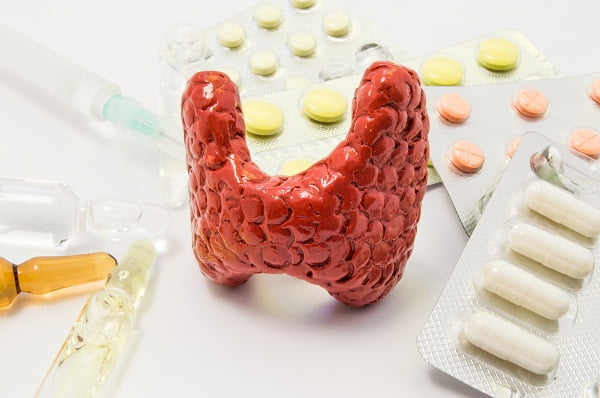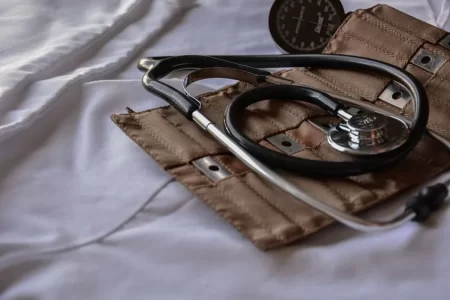Treatment of Over-Active Thyroid (Hyperthyroidism)
- Updated on: Jun 12, 2024
- 4 min Read
- Published on Oct 2, 2019


Treatment Options
Several treatments exist for hyperthyroidism. The disease can be treated after confirming the cause and severity. The best treatment depends on your age, disease severity, physical conditions, personal preference, and the underlying cause. Thyroid surgery, radioiodine therapy along with medications is the main treatment option. Following are the treatments commonly opted for Hyperthyroidism:
Anti-Thyroid Drugs
Using anti-thyroid drugs is the most common treatment for hyperthyroidism. These drugs are thyrostatic drugs and inhibit the production of thyroid hormone.
At the molecular level, these drugs prevent the iodination of thyroglobulin, a precursor of thyroid hormone. Carbimazole and methimazole are most often prescribed by doctors. Propylthiouracil is another drug which works outside thyroid gland. It prevents the conversion of inactive thyroid hormone to active thyroid hormone.
These thyrostatic drugs may take up a week to show their effective and often the dose needs to be titrated for a period of a month. Regular visits to the doctor with careful monitoring of results are important. Often, in the initial period of treatment, a very high dosage is required but keeping persistent with the high level of thyrostatic drugs may result in hypothyroidism.
Some people who are allergic to these drugs may develop skin rashes, fever, hives or joint pain or can cause you certain infections.
Beta-Blockers
Symptoms like trembling and anxiety are mediated by an increase in the level of beta-adrenergic receptors on cell surface. Beta blockers, used for the treatment of high blood pressure, are a class of drugs that reduce rapid pulse and anxiety or trembling associated with it. Thus, for immediate relief and until radioiodine therapy is done, these drugs can be used.
These drugs are not used for treatment of the condition as any of its relieving effect does not stay for long. However, they can be used to reduce the symptoms of a thyroid condition temporarily.
Propranolol and metaprolol are most frequently given to thyroid patients. These medicines can cause side effects such as dizziness, fatigue, headache, stomach problems like constipation, diarrhoea etc.
Low Iodine Diet
Iodine is associated with hyperthyroidism. People suffering from auto-immune hyperthyroidism should not eat foods like kelps and seaweeds which are high in iodine. According to a survey report, use of iodized salt improves the development of children whose mothers would not have eaten enough iodine during their pregnancies.
Radioiodine Therapy
In a radioiodine therapy, iodine-131 is given orally either as a pill or liquid on a one-time basis. Radioiodine severely disrupts or destroys the function of a hyperactive thyroid gland. The life span of radioactive iodine is about 8-13 hours, so the chances of tissue damage are quite less. It’s possible that people may not respond to the first dosage of iodine and a high dosage may be needed.
Iodine is taken up more readily by the overactive thyroid gland. The destruction is local and there is no widespread side effect of this therapy. Once the thyroid becomes inactive, hormone replacement therapy can be started which is extensive and followed up for few years.
The therapy has a high success rate as compared to other medications. Since the radioactive iodine destructs the thyroid tissue, there is a transient period when the symptoms of hyperthyroidism may worsen. This happens as thyroid hormones are released into the blood. In such cases, beta-blockers are used to provide immediate relief.
Most people do not experience side effects after radioactive iodine delivery, but occasionally may feel neck tenderness. Radioactive iodine is not given in cases when:
- the patient is pregnant or planning to conceive in next 6 months
- the patient breastfeeds a child
- the patient is suffering from thyroiditis
Radioactive iodine is absorbed by your thyroid gland, where it causes the gland to shrink and symptoms to subside (within three to six months). Since this approach causes thyroid activity to slow down significantly, causing the thyroid gland to be underactive (hypothyroidism), your doctor may recommend medication to replace thyroxine. This options of treatment is generally safe.
Surgery (thyroidectomy)
Surgery to remove whole or a part of the thyroid is not very extensively used. Most common forms of thyroid conditions are treated with radioiodine tests. The risk of removing a thyroid gland is quite high and the surgery can be quite complicated as the whole body is affected by it. But some people with Graves’ disease may opt for surgical removal of the thyroid gland. It also includes people who can’t tolerate medicines for one or the other reason.
Graves’ Ophthalmopathy
If Graves’ disease affects your eyes (Graves’ ophthalmopathy), you might require additional treatment. You can manage mild signs and symptoms by avoiding wind and bright lights and by using artificial lubricating gels. However, if the symptoms are severe, you might require medication such as corticosteroids, to relieve the symptoms like swelling behind the eyeballs.
Sometimes, a surgery may be needed. Surgical options available are orbital decompression surgery and eye muscle surgery.
When to immediately see a doctor
A very serious and life threatening problem associated with hyperthyroidism is Thyroid storm. Immediately call a doctor if the person diagnosed with hyperthyroidism is feeling:
- fever and irritation
- abnormal pulse rate (Higher or lower than normal)
- nausea or diarrhea
- confusion and sleepy
- having difficulty in breathing
Know about signs and symptoms of hyperthyroidism.












